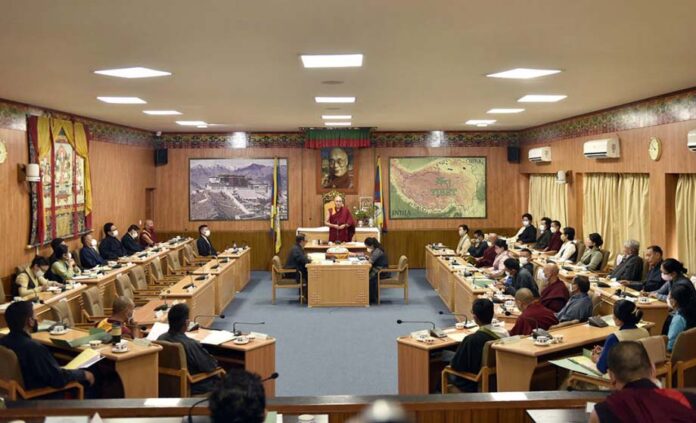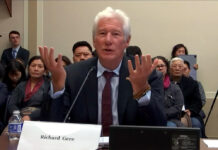
(TibetanReview.net, Oct13’21) – The first session of the 17th Tibetan Parliament in Exile (TPiE) held over Oct 11-12 could at best be described as a limited success. A section of the members boycotted or walked out of parts of the session, still insisted that the three justice commissioners of the Tibetan Supreme Justice Commission (TSJC) leave their posts and the nomination of a candidate for confirmation as Kalon (Minister) withdrawn.
The session confirmed three nominees for appointment as Kalons (Ministers) proposed by Sikyong Penpa Tsering but rejected two others. When a sixth name – that of current TPiE member Ngodup Dorjee – was proposed, 19 members, led by Dotoe member Serta Tsultrim, staged a walkout to deny the session its quorum for continuing to conduct business. As a result, the name of a seventh nominee could not be proposed. Sikyong Penpa Tsering called the walkout unbecoming of the members but decided to propose names for the remaining four Kalon posts during a future session.
If the first day’s meeting came to an abrupt end as a result of the walkout, the second day’s meeting began with a boycott. An internal meeting scheduled to discuss resolution No. 39 of the 16th TPiE in March, which very controversially removed from office all the three justice commissioners from their posts, was rendered impossible by the same quorum-busting group.
And it was members of the same group which prevented any discussion of a proposal to amend the Charter of Tibetans in Exile on the appointment of justice commissioners of the TSJC. They vowed to prevent any discussion of the amendment so long as the justice commissioners continued to remain in office, although the two issues were entirely unrelated.
Following this development, the parliament resumed its sitting at 11:15AM to discuss and adopt eight official resolutions of obituary and mourning, and one official resolution of solidarity with the suffering of the Tibetan people inside Tibet. These included a resolution of gratitude to His Holiness the Dalai Lama who, having been approached for advice, had asked the elected candidates to take their oath under the Charter of Tibetans in Exile, making it clear that he could not give any advice outside the Charter. It was also a resolution expressing remorse for having caused disturbance to His Holiness’s mind which had led to him having to give an advisory.
==============
(CORRECTION: Available reports suggested, but did not say in so many words, that the members who boycotted the second day’s internal meeting of the TPiE were those from the group that staged a walkout on the first day over the nomination of a candidate for Kalon. It has now been pointed out by a TPiE member that the members who boycotted the internal meeting were not the same as those who staged the walkout on the first day and the number of those who staged the walkout was 18, not 19, as stated in this report. Readers are accordingly urged to take note of these two rather significant corrections.
Whether this correction slightly negates the answer to the question mark on the title of this report is for the readers to judge. —Editors)
=============





